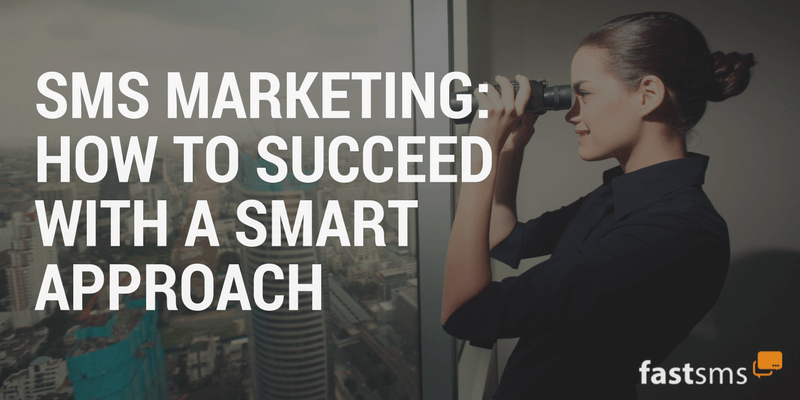3 Golden Rules for Sending Your SMS Messages at the Perfect Time of Day

The best thing about SMS messaging is you can reach your customers at any time. The worst thing about SMS messaging is you can reach your customers at any time. Think about it. People have their mobiles with them constantly. Even while they sleep according to many surveys.
So, you can get their attention immediately when you send a message. You can just as easily disturb them. While there really isn’t any universally agreed time to send a message, there are three rules you can follow to get as close to perfect timing as possible.
1. Don't Send Too Early
This seems obvious, doesn’t it? But I’ve been awakened by an SMS message multiple times. The most recent one was at 12:35 a.m. My mobile network sent me the message to inform me I had plenty of data left in my plan for the month and that I had three days left to use it.
I can tell you, I wasn’t using it while sleeping. That message could have waited until later in the morning. Even if the message was a warning about using too much data, there’s nothing I would do about it in the middle of the night.
My example is clearly an automated message generated by the mobile network. I don’t think someone sat there and said, “Let’s wake someone up”! But it does bring up an important point: All messages need to be scheduled for appropriate times, even automated ones. Luckily, fastsms users can use the business hours feature to set the timeframe you want messages to be sent (even automated ones) – if a message gets sent outside those set hours it’ll simply wait till the morning and send it then.
You want to send your messages when they will be useful to your list. Too early in the morning and you might wake them up. Or they won’t see the message because they’re in a hurry to get ready for work or school. So just because you’re raring to go at 8 a.m., doesn’t mean it’s the best time to send a message.
2. Don't Send Too Late
Sending a message too late in the day can be just as bad as too early – at least from your point of view. That’s because later in the day people are getting on with their lives. Once they get home from work they’re doing things with family, friends, or their hobby. They might still be using their phone, but studies show mobile activities switch to apps in the evening hours. No one wants their game, or streaming movie interrupted by a text message.
That means messages sent too late can be seen as interrupting important activities. And if your messages are seen as annoying, it could increase the number of people who opt out of your marketing. That’s the last thing you want to happen.
3. Pay Close Attention to Your Metrics
Now that I gave you useful, but vague, advice in rules one and two, this is where it gets serious. If you look around the web, you’ll find lots of articles with guidelines about what times you should send your message. Many of those can be a great place to start.
For example, I see articles all the time that say never send on a Monday. They have statistical data to back them up on that point too. So, in the beginning, maybe you don’t want to send messages on Mondays.
Other places say to send the messages at “odd” times. Maybe 1:36 instead of 1:30 (in the afternoon obviously). More generic advice is to send between 10:30 a.m. and 5:30 p.m.
Of course, there are different types of messages that need to be considered too. Appointment reminders aren’t the same as marketing messages. But when deciding the time of day, most of the same rules apply. For example, a client has an appointment at 7:30 a.m. Thursday. Best practices say you probably want to send a reminder 24 hours before. But do you really want to send it at 7:30 a.m. Wednesday? Maybe. But it might be better to add a delay so it goes out after 9 or 10 (easily done with fastsms).
This rule mentioned metrics, which I haven’t talked about yet. But I wanted to make the case first, that you can find all kinds of information about time of day if you do some research. After you do that though, and have sent lots of messages, that’s when you do the real work of discovering the perfect time of day for your list.
The way to do it is to find correlations between the actions taken with the time of day the message was sent. Examples of actions include clicking a link, replying with a keyword, or opting out of the list. If you get the most clicks at 11:36 then that’s a great time for you.
You’ll know if a time is bad when you get a jump in unsubscribes, or very few clicks. Of course, this could also be because the offer was bad. This is why you need to keep looking at your metrics versus time before you make any rash decisions. The more data you have on how your list behaves, the better the correlation will be. Not all lists are the same, and they won’t always stay the same. But if you keep rules one and two in mind, and watch your metrics, you’ll be able to focus in on the perfect time of day to send your messages.
Related Articles
Beginners’ Guide to SMS Marketing – July 2016 Update
If you've considered SMS marketing to new and existing customers by text message but dismissed it, it really is time to think again. SMS continues to outperform and outreach all the newer models of communication designed to replace it. The latest competitor to run into difficulties against business text messaging is mobile internet advertising.
10 Killer SMS Strategies
Nowadays, there are an increasing amount of companies using SMS marketing, but you can stay ahead of the trend by using it more wisely with our killer strategies list. Best used as part of your marketing mix, alongside other strategies, this should complement other points of contact and deliver an intuitive and responsive customer service that is unrivalled by competitors.
SMS Marketing for Sports Teams
An effective use of SMS campaigns is for support of sports teams and leagues. Using automated messages to communicate with supporters ensures that your teams have the chance to play to full stadiums throughout each and every game. This, in turn, motivates them, providing support.
SMS Marketing – How to Succeed with a SMART Approach
Sending Your First SMS Marketing Campaign
6 steps to sending your first SMS marketing campaign. Whether you've already decided to use fastsms, or are still trying us out - these simple steps will show you how quickly you can get up and running and sending texts to your customers.
SMS Messaging for Cafes and Restaurants
With more and more people than ever before eating out and sampling food from around the world in eateries up and down the country, the restaurant sector is booming. But if you're operating a small business in the hospitality sector, you need to make sure that you keep your premises as full and thriving as possible in order to pay your bills and keep the enterprise sustainable. That's where SMS messaging comes in. In this blog post, we will look at ways you can use SMS messaging to make your business processes more efficient, boost your customer numbers and become the most popular place in town.
3 Compliance Tips for Your Next SMS Marketing Campaign
When conducting an SMS marketing campaign, there are a number of compliance regulations you should be aware of, to ensure that your communications are as effective as possible, without being potentially damaging to your campaign or your business. If you're marketing to a UK market, the UK Privacy and Electronic Communications Regulations (PECR) gives clear guidelines on what falls within the rules. Here we've highlighted some key tips to ensure your next campaign is compliant, based on common questions that arise.
The Ultimate Guide to SMS Marketing for Small Businesses
SMS marketing or short messaging service marketing is swiftly gaining popularity all over the world. Using text messages for business purposes is convenient and quick. It's also extremely cost-effective when compared to other methods of communication. When used correctly, an SMS marketing campaign can do wonders for your business reputation, not to mention your profits.
Why SMS Messaging is the Future of Marketing…
Since the first ever mobile ad was sent out via text back in 2000, SMS marketing has become hugely popular. What's more, it's a successful technique that an increasing number of marketeers are taking advantage of. So why is it the future? Here are a few reasons...
Business SMS Marketing: Striking the Right Tone
Tone of voice is important in all business communications, from letters to direct mail campaigns. The way you speak to clients is all of a part of the image you create in their minds of your brand. As short as they are, this also applies to business text messaging. It may even be more important to get the language and tone right in your messages, particularly your SMS marketing, than in an emailed leaflet.












